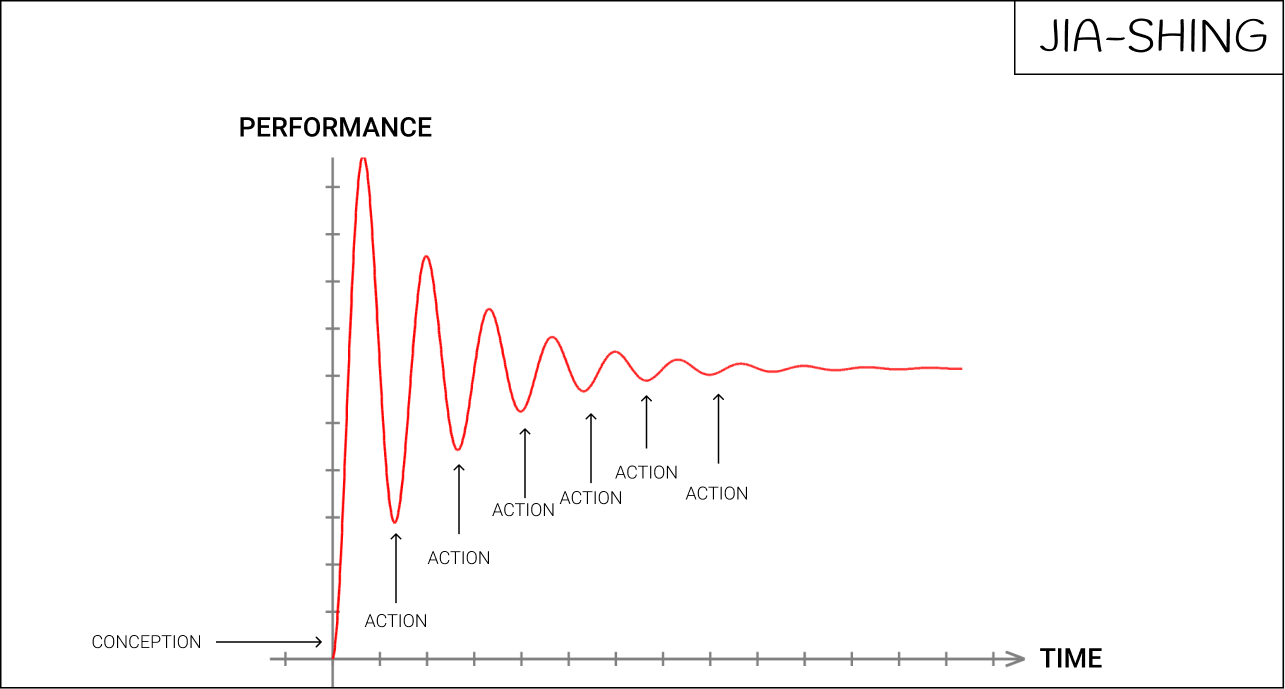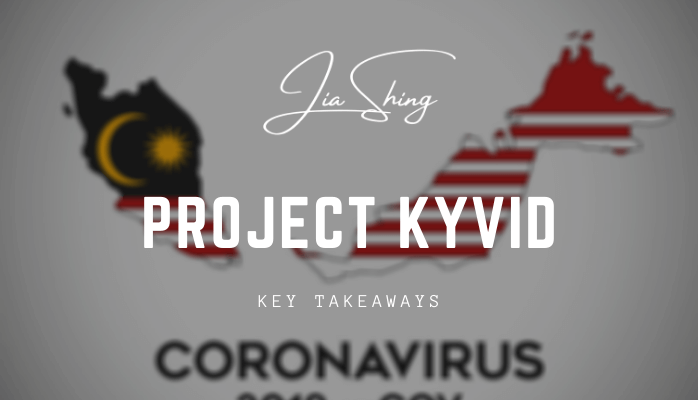On the day that the SAT 1 scores were released, I was sharing my results with Afiq Amjad.(my friend from KYUEM, check out his blog where he shares his journey of learning the Japanese language) We then moved on to discuss the severity of the COVID-19 spread in the US when he suggested that we should have a fundraising project for the marginalized communities who lost their lifelihood due to the national COVID-19 lockdown.
Within a couple of days of discussion, we started a short-term crowdfunding project called Project KYVID. Due to the generosity of the KYUEM students and their care for the community, the project was a resounding success and we managed to raise a significant amount of funds to be donated to an NGO that aligns with our cause.
Here are a few takeaways I came across in the process of running this project.
Background
Project KYVID is a KYUEM student-led initiative to help those who lost their livelihoods due to the novel COVID-19.
This project was split into 2 phases:-
- Phase 1 involved collecting donations from Scholars and College Clubs. It ran for about a week and managed to collect RM 5175.00 in contributions.
- Phase 2 is the collection of donations from the Student Population. Over the period of about 2 weeks, we collected an additional RM 6415.00.
In total, the Project ran for about three weeks and raised RM 11590.00. All proceeds were directed to The Lost Food Project.
1. The importance of having a sense of purpose
We can all agree that the COVID-19 lockdown was immensely frustrating for all of us. Out of a sudden, our routines were disrupted, we had to stay indoors indefinitely and anxiety spread through the community just as fast as the virus, if not faster.
Being so accustomed to a hectic schedule and a fast-paced lifestyle, the lockdown essentially slammed the brakes on my mental gears and brought my life to an abrupt halt. I felt so lethargic because there wasn't a structure to my day and there was nothing to look forward to or work towards.
When Afiq suggested Project KYVID, I saw that the opportunity to keep myself occupied and took it. I was writing proposals, tracking donations and drawing up the report for each phase.
I quickly came to realise that having a project added these things to my life:-
- Direction
- Structure
- Fulfillment
I woke up having a set of things to do (direction), proceeded to plan out my day(structure), get things done(fulfillment) and went to bed knowing that the day has not gone to waste. That was one of the main things that kept me sane during the lockdown.
2. Ride the Dopamine Wave
When the project was at its initial discussion stage, I was worried that it would be one of the projects that was discussed a lot but nothing came of it. I came across similar situations one too many times and could recognize the pattern of feeling excited and hopeful when starting something new.
This is when I came across an article called "Novelty and the Brain: Why New Things Make Us Feel So Good". In it, they discuss the nitty gritty aspects of how new things cause our brain to release dopamine and stimulate an area called the Substantia Nigra.
I'll let you explore the contents of the article yourself if you're interested in those topics and get straight to my point:-

This figure above is what I call the "Dopamine-Action Graph". When an idea is still in conception, we often get bursts of motivation and a surge of adrenaline to go out there and crush it. This is because in that stage, progress can be achieved in a very short period of time and hence we receive a successive series of gratification and we are motivated to do more.
With time, as the idea is fully formed and the project enters the practical discussion stage, things get harder to coordinate and progress is made at a steadier pace. This is where the novelty wears off for most people and they give up on their potential-packed projects.
What I experimented with Project KYVID was to "ride the dopamine wave" and try to get as much done as possible before the novelty wears off. Within the first few days, we contacted the necessary parties, drafted the proposal, got it approved and launched Phase 1. Everytime I felt the novelty wearing off, I took action (contacting new people, updating the collection amount, etc) to get the momentum going.
The idea is to get your performance to a point where it doesn't dip as much and is hence "sustainable" without the need of continuously experimenting with new methods of doing things to keep your momentum going.
3. Communicate effectively
One of the best thing in my experience of working with Afiq is that by default, have our strengths sorted out. I was the one who would handle all the paperwork, red tape and the technical aspects of things; he's the one who contacts interested parties and ensures that all parties remain well-informed.
Although we had our task delegation sorted out for us, we still had to communicate effectively when it comes to other matters. If we were going to be otherwise occupied during a time where we promised to be handle matters regarding the project, we would inform each other. We would cross-check each others calculations of the donations collected to ensure that we obtained the correct sum.
All these seem rudimentary but it's almost impossible to run a project without effective communication, and effective communication takes practice. Try practising effective communication in your daily life and hold yourself accountable to your words and actions. This would come in handy when you need to work with others on a project and would give you the edge over other project planners.
There were many lessons I picked up from running this projects but those stated above are the top 3 lessons that made all the difference in our project. I hope you find them useful in your project planning journey or even in your personal life. If you have had a different experience planning your project, feel free to email me at hi@jia-shing.com. I'm eager to hear from you. Till then!
If you enjoyed this type of content, consider subscribing to my weekly newsletter called Sunday Scoop🍨 where I share :-
* a short article on a few life lessons I've picked up/productivity method I'm experimenting within the week
* links to the favourite contents I consumed that week
* a question to ponder on for the week (or a challenge if I'm feeling cheeky!)
If this seems interesting to you, feel free to subscribe to my email newsletter below!
